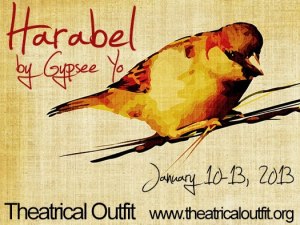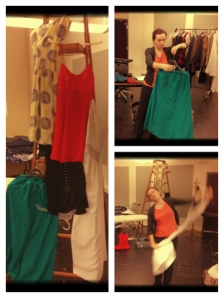(Draft)
She answered my advertisement on Craigslist.
My name the only one who didn’t sound
Like crackle dry magnolia or menopausal peach fuzz lips
Snoring like the echo of the sewing machine’s murmur.
She found me when I was two years foreigner. A social security card
screaming in carbon letters “do not hire under the penalty of law”.
I was sewing for rich women with closets
The size of my old country, and nothing to wear.
They liked my silence. The discretion of my hands.
The thousand yards stare I wore for a face.
They paid me in leftovers, gas money, and last season shoes.
They taught me for their kind, unlike mine,
Starvation was a necessary choice.
She has the name of old steel money and golden plaques
On library and hospital lobbies all over Birmingham.
She says she wants…. just in case…. .A white noise replica
of her mother’s wedding dress…. And only if… it doesn’t fit…
She doesn’t shrink…. fast enough….. in time…. for the wedding.
When I tell her
I believe in making clothes for the body
And not the other way around
She turns her back to me, an angry ship
The mast of her spine protruding under designer sails of silk.
I am blasphemy and untruth. To say she doesn’t have to mold
bones inside the cavern of that dress. to unholy the garment.
To shun it as a cathedral of trimmed women’s voices.
What would I know,
Coming from burning bush,
what it means to come from evergreen bristle.
Southern girl been raised on that religion.
Duty to be pretty. Worthy to be seen.
Believing only in the gospel according to mirrors.
They wait for her everywhere, all clean cut and white shirt smile
Like a pack of Latter Day Saints, always ready to recruit.
Southern girl been raised only
To fit into the wedding dress
The way
The truth
The life
She shall be saved
In child bearing.
Her cross hangs in her closet
The way it did in her mother’s
And her grandmother’s before her
Vanilla bean color, surrender size.
She tries it once a week, asks me to zip it up.
My throat is a hot tub full of dumb bridesmaids
When I ask her to suck in.
When the zipper’s teeth still refuse to kiss
Her fear crawls out of her bustle
a roaring engine tearing through White County
Whistle full of frat boy spit.
She becomes closed door and running water.
I stand in the middle of her lime porcelain bedroom, trapped.
I do not understand her. I am unfair. I tell her to come out.
I threaten to shred the dress with the fangs of my shears.
I want to tell her, shut up. Like she already hasn’t.
I want to tell her. Rape Camps. Mothers and daughters in the same room.
Same men breaking into them. with hammers. Wrenches. Fingers of thick trees.
molding their bones into shame they will wear
Seven generations of shattered blood.
I want to tell her, two years means nothing in the sea of unforget.
I am two years of unwords, unpoems, undone. I want to tell her
I do not want to ever finish her dress.
I have seen how wearing shrapnel changes a woman’s landscape.
I sew for her at night, when the radio plays static to kill the unbearable silence
Of a city which used to fight people with bursting water and unmuzzled dogs.
A city ran by her grandparents. Their steel furnaces. Their luncheons with the governor.
I rip her dress in the morning, when the humidity starts creeping
through the screen doors like the memory of the violence neither one of us can escape.
The sound of the seams splitting apart makes me weep.
I am a lost narrative thread.
I put it together again. I am stalling, hoping to buy her time
to find herself. I wish I knew what to say.
My sewing machine cannot stitch like a typewriter.
It cannot master the dialect of my longing.
Its jaws are tight with tension. They were not built for words.
Its foot stomps relentlessly through yards lost in translation.
The needle is an unreliable tongue,
piercing through my solitude.
the day I handed over the dress, my silhouette
slipped a murderous quiet through the back kitchen door,
once used by her family’s black maid.
The last time I ever handed a woman
a weapon against herself.


